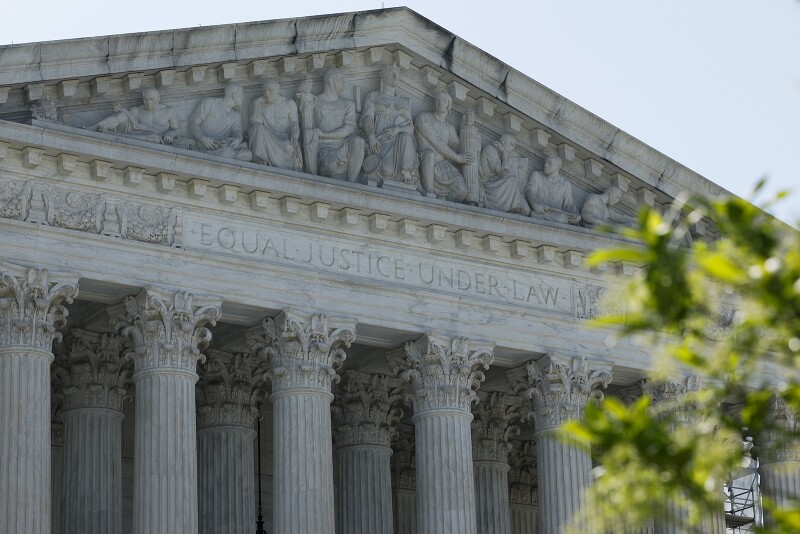Politics
Supreme Court’s Immigration Ruling Raises Concerns Over Racial Profiling

The U.S. Supreme Court’s decision on September 8, 2023, to grant a stay on a California court’s injunction against certain immigration enforcement policies has sparked significant debate. Critics argue that this ruling paves the way for racial profiling, allowing law enforcement to question individuals based on their ethnicity, language, and appearance.
The ruling has stirred concerns among many Americans who value both national security and constitutional rights. According to data from the U.S. Census Bureau, approximately 19% of the U.S. population identifies as Hispanic. While many are proficient in English, a substantial number are not, raising the question of whether their ethnicity alone could warrant questioning about their immigration status.
Justice Brett Kavanaugh provided some insight into his reasoning, arguing that law enforcement’s use of “common sense” can guide their decisions in questioning individuals. He suggested that ethnicity might be considered alongside other factors, such as language and location. This perspective has raised alarms among those who fear it could lead to discriminatory practices.
For those affected, the reality of being stopped can be intimidating and traumatic. Reports indicate that U.S. citizens, particularly in areas like Los Angeles, have faced aggressive questioning tactics, including being pushed against walls and subjected to physical restraint. The potential for misuse of such powers is a significant concern for advocates of civil liberties.
Justice Sonia Sotomayor expressed her dissenting opinion, emphasizing that a government that can detain individuals based solely on their appearance is fundamentally unjust. “We should not have to live in a country where the Government can seize anyone who looks Latino, speaks Spanish, and appears to work a low-wage job,” she stated, highlighting the troubling implications of the ruling.
The implications of this decision extend beyond legal interpretations. They touch on the ongoing struggle for equality and justice in America. The Supreme Court’s majority decision is seen as a regression in the progress made towards embracing diversity and preventing discrimination based on external characteristics.
As the debate continues, it remains crucial for citizens to engage in discussions about the balance between security and civil rights. The implications of this ruling could shape the future of immigration enforcement and the principles of fairness and justice in the United States. The ongoing dialogue will be pivotal in determining how these policies evolve and how they impact the lives of countless individuals.
-

 Lifestyle3 months ago
Lifestyle3 months agoLibraries Challenge Rising E-Book Costs Amid Growing Demand
-

 Sports3 months ago
Sports3 months agoTyreek Hill Responds to Tua Tagovailoa’s Comments on Team Dynamics
-

 Sports3 months ago
Sports3 months agoLiverpool Secures Agreement to Sign Young Striker Will Wright
-

 Lifestyle3 months ago
Lifestyle3 months agoSave Your Split Tomatoes: Expert Tips for Gardeners
-

 Lifestyle3 months ago
Lifestyle3 months agoPrincess Beatrice’s Daughter Athena Joins Siblings at London Parade
-

 World3 months ago
World3 months agoWinter Storms Lash New South Wales with Snow, Flood Risks
-

 Science3 months ago
Science3 months agoTrump Administration Moves to Repeal Key Climate Regulation
-

 Science2 months ago
Science2 months agoSan Francisco Hosts Unique Contest to Identify “Performative Males”
-

 Business3 months ago
Business3 months agoSoFi Technologies Shares Slip 2% Following Insider Stock Sale
-

 Science3 months ago
Science3 months agoNew Tool Reveals Link Between Horse Coat Condition and Parasites
-

 Sports3 months ago
Sports3 months agoElon Musk Sculpture Travels From Utah to Yosemite National Park
-

 Science3 months ago
Science3 months agoNew Study Confirms Humans Transported Stonehenge Bluestones









